This week we have more from the Universities Minister as the post-Covid policy direction becomes clearer, as well as that speech from the Secretary of State abandoning (again) the 50% target for HE participation , some Committee views on the impact of the virus and what to do about it, and in case you have forgotten about Brexit and the new points-based immigration system, we had more detail this week. There is the NSS and some other survey news too. Brace yourself – it’s another bumper edition.
The Universities Minster speaks
A two-for-one offer this week. Below we will talk about Gavin Williamson’s speech on FE (and related attack on HE). But before we get to that, we want to share Michelle Donelan’s latest on 15th July when she was questioned by the Education Select Committee.
As we write this the transcript of the session isn’t available, but there is plenty of media coverage.
You should read the Research Professional article in full, but in case you don’t have time we offer some highlights:
- Donelan was answering a question from Conservative committee member Caroline Johnson, who wanted to know which groups of young people were least likely to go to university, why that might be and what was being done to encourage them.
- “First of all I want to say that we don’t necessarily want everyone to go to university—that was very much the essence of the secretary of state’s speech last week,” she said [see below for our summary of that]
- …Whether you are advantaged or disadvantaged, higher education is not necessarily the best route to get to where you want to go in life,” Donelan said. “I really think we need to move away from this focus of how many students get to university because it is such a blunt instrument that isn’t actually very accurate in terms of social mobility,” she added. “If a student gets to university and drops out after year one and has a year’s debt, what does that achieve for their social mobility? Nothing. In fact, it sets them back in life. “It is about them completing high-quality, academically rigorous courses that then lead to graduate jobs—and that is the important measure we should be looking at.”
- Johnson did not miss the fact that the universities minister had not really addressed her question, so she went back in for a second go. “The question was: Which groups are currently least likely to go to university and is there much talk about helping those groups…to consider it as a career [choice]?” she said.
- Donelan trotted out the well-worn line about “record numbers of disadvantaged students going to university” (missing out the word “young”, which is crucial here given the decimation of the mature student body) but acknowledged that there were “still challenges within different sections of society, including white working-class students”. “But I actually don’t think it is a good measure to look at,” the minister continued. “It is the wrong question, if you don’t mind me saying, because it doesn’t matter about looking at which groups don’t get to university. It is about making sure that those groups that do go complete, that [their course will] lead to graduate jobs, but also looking at what is in that student’s best interests.”
- …Donelan’s declaration that this “doesn’t matter” will be confusing for the great many people who work in widening participation. Johnson seemed taken aback, too. “Does that mean no university will be required to have a target of any particular demographic of student?” she asked.
- Donelan’s response that universities were “individually accountable” for their access and participation plans, and that there were “different issues in terms of demographics” for different universities, will not do much to address that confusion. Nor will her repeated message that “access and participation is not just about getting the student in; it is about making sure they can complete their course” and then go on to get a graduate job.
- “We need the sector to actually look at their offer…and their messages to prospective students, because they do tend to promote courses too much that don’t offer those graduate outcomes,” the minister concluded.
Jim Dickinson has also done a summary for Wonkhe and we pick out some different points although of course he includes the access and participation stuff too:
- Remember all that stuff about bite-size, modular learning in Augar? It sounds like that will make it into the response in the Autumn. Donelan said: “Some of the work I’m doing at the moment is looking at potential for modular learning and how we can expand the part time offer as part of our response to Augar, which we will be responding to in line with the spending review.” Whether that Augar response will tackle the widespread disbelief this time last year that the SLC would be able to handle the complexity of loans for tuition and maintenance at module level remains to be seen.
- That “other half” of the bailout – the “restructuring regime” yin to the research funding yang, if you will, is coming. And we got a preview of the length and thickness of the strings that will be attached here: “So I can’t obviously pre-empt a report that’s going to come out. But what I can say is the driving force behind all of my work and all of the department’s work in HE is to prioritize quality provision that is fit for purpose and that unlocks opportunities for individuals that are making, at the end of the day, a massive investment in their future and one that they do want to see pay off in some form or another. I think too long we’ve let far too many students down by pushing and promoting courses that don’t have that value, don’t lead to those graduate outcomes and jobs. But at the same time, get them into tens of thousands of debt, which I just don’t think is good enough.” Any funding from DfE would surely have to come through OfS, which was already busy with a funding review and a look at its minimum thresholds for quality.
- Lots of people have been concerned about student hardship during the pandemic, and so were the committee. Here the minister stretched credibility beyond all usual limits in her framing of the ability to spend some student premium in a slightly different way – an issue we’ve picked Donelan up beforeon the site: “Students have been affected by the pandemic in terms of finances, that’s undeniable. So most institutions have their own hardship funds and assistance already. And then they receive money every month for access and participation, which we worked with the Office for Students to remove the restrictions around so that they could unlock twenty three million pounds per month for April, May, June and July. So 23 million pounds each, which is a considerable amount of money that they were able to then access to top up their hardship funds. And we promoted the use of that for things like accommodation, technology costs, system connectivity costs, all of these things. And that’s had a really fantastic impact in terms of trying to direct that support. I think it was right that we channelled that through universities who had these relationships and could identify those students most in need.” We’re very much looking forward to seeing the evidence for the claim for the “a really fantastic impact” line, which surely must be coming given how much we all like to focus on “what works” and “outcomes” these days.
Levelling up and higher technical education
On Thursday last week Gavin Williamson gave a speech with the Social Market Foundation and then on Tuesday this week, a press release with more of the detail.
The speech set out the Government’s intentions to refocus FE, raising its profile and establishing the higher technical route as a genuine alternative to a degree. The announcement was well trailed in advance as the sector anticipated that the government would abandon Tony Blair’s target for 50% attending university (of course this wasn’t actually the target and it had already been dropped – Blair’s target was not about universities and l technical education for people under 30, as explained by former Minister Chris Skidmore here ). Given we have had several weeks (months?) of anti-HE rhetoric we had an impending sense of doom as we waited for Williamson’s speech. However, while there are the usual digs, it focussed enough on FE to be balanced. And there is an opportunity for universities. For years the Government has urged HE institutions to work with their local schools and FE provision and received a lukewarm response, and universities will be able to access the higher technical qualification funding in collaboration with FE providers.
There was lots of interesting content in the speech, browse through the below, summarised in places to shorten it:
- There is so much right with our education system but when it comes to further education, too many people here don’t value it as much as they should.
- It exasperates me that there is still an inbuilt snobbishness about higher being somehow better than further, when really, they are both just different paths to fulfilling and skilled employment. Especially when the evidence demonstrates that further education can open the doors to greater opportunity, better prospects and transform lives. We must never forget that the purpose of education is to give people the skills they need to get a good and meaningful job.
The Minister mentioned the following sources of financial support mentioned in the budget last week (read more in our update from last week).
- When I first came into this job, I was firmly of the belief that there needed to be a major shift in how we treat further education. Not just because of its importance in levelling up. But because further education is vital if we want our country to grow economically and our productivity to improve. We need fundamental change, not just tinkering around the edges.
- …Further education is central to our mission of levelling up the nation. Or quite simply, giving people the skills that they need to get the jobs that they want. If you want to transform many of our left-behind towns and regions, you don’t do it by investing more money solely in universities. You invest in the local college – the beating hearts of so many of our towns.
- But unfortunately, we’ve not been providing as many of our young people with this opportunity as we should….Since becoming Education Secretary, I was shocked to discover that while the number of people going to university has increased, the total number of adults in education has actually fallen.
- So what’s driven that fall?… There has been a systemic decline in higher technical qualifications… Within Higher Education Institutes, foundation degrees have declined from a high of 81,000, to approximately 30,000. Undergraduate part-time study in higher education has also fallen significantly, from nearly 250,000 in 2010 to under 100,000. Together, these more than outweigh the increase in young people going to university. And for those who haven’t achieved the equivalent of A-Levels by age 18, the chances of proceeding to higher levels of qualifications is, as Philip Augar’s report puts it, ‘virtually non-existent.’… Only 10% of all adults aged 18-65 hold a Higher Technical Qualification as their highest qualification. This compares to around 20% of adults in Germany and as much as 34% in Canada…We’re writing off people who have a tremendous potential to contribute to our society.
- For decades, we have failed to give further education the investment it deserves. Of course, we know universities have an important role to play in our economy, society and culture. But it’s clear that there are limits to what can be achieved by sending ever more people to university, which is not always what the individual or our nation needs.
- In February I got sent a copy of the Oxford Review of Education’s special edition, about Higher Education and the labour market…Consistently across countries, there is evidence of filtering down in the labour market. That means that graduates are competing for jobs that used to be – and could still be – done by non-graduates. And a significant proportion of graduates fail to gain much advantage from going to university at all…It reinforces what we already know…that 34% of our graduates are in non-graduate jobs, more than any other countries in Europe except for Ireland and the Czech Republic. And employers say that too often, graduates don’t have the skills they need, whether that’s practical know-how or basic numeracy and literacy. [Here you may wish to read Wonkhe’s alternative take on the 34% underemployed.]
- ….Skilled trade and professional occupations, in sectors such as manufacturing and construction, report some of the highest skills shortages. Many of these occupations require intermediate or higher technical qualifications – precisely the things that we are not teaching. Simply as a nation we seem to have given up on them when these are the skills we need most to have a chance of competing against other nations.
- And let’s not pretend these qualifications are in any way inferior to a degree. The outcomes speak for themselves. Five years after completion, the average Higher Technical Apprentice earns more than the average graduate. I’d like to pause on that point just for a moment. A work-based, technical apprenticeship, lasting around 2 years, gives greater returns than the typical three year bachelor’s degree. For too long, we’ve been training people for jobs that don’t exist. We need to train them for the jobs that do exist and will exist in the future. We have to end the focus on qualifications for qualifications sake. We need fundamental reform: a wholesale rebalancing towards further and technical education. And across our entire post-16 sector, we need a much stronger alignment with the economic and societal needs of the nation.
- My personal commitment is to put further and technical education at the heart of our post-16 education system. Like the Prime Minister, I believe that talent and genius are expressed as much by the hand and by the eye as they are in a spreadsheet or an essay.
- We need to create and support opportunities for those who don’t want to go to university, not write them off – or drive them down a path that, can all too often, end with graduates not having the skills they need to find meaningful work.
The Minister states these reforms as successes (!):
- Apprenticeship level and move to employer-led standards
- Introduction of T levels
- But, we need to go further, we need to go further and we need to go faster: to remove qualifications that are just not fit for purpose; to tackle low quality higher education; and to give colleges the powers and resources that they need to truly drive change.
Germany…
- This autumn I will be publishing a White Paper that will set out our plans to build a world-class, German-style further education system in Britain, and level up skills and opportunities. This will not be about incremental change, but a comprehensive plan to change the fundamentals of England’s further education landscape, inspired by the best models from around the world.
- It will be centred upon two things. Firstly, high quality qualifications based on employer-led standards. All apprenticeships starts will be based on those standards from August this year and we will be looking to place such standards at the heart of our whole technical education system. Secondly, colleges playing a leading role in developing skills in their areas, driving an ambitious agenda that responds to local economic need and acting as centres for businesses and their development.
The Minister pledged to review the 12,000 level 3 qualifications simplifying the system into a consistently high-quality set of choices with a clear line of sight to study at higher levels.
- …following our consultation last year we will be bringing forward plans to reverse the decline in higher technical education so that we can begin once more to train people for the jobs that the economy actually needs…And we want to do much more to open up more flexible ways of studying, including better support for modular learning.
- Reforming and growing higher technical education will be a long-term endeavour. We want to see our great further education colleges expanding their higher technical provision. And although this speech is about further education, universities can be an important part of the solution, if they are willing to significantly step up their provision of higher technical qualifications.
- Of course, qualifications are only half of the picture. Equally important is where they are taught…how our colleges should look in the future…They should be led by great leaders and governors who are drawn from local communities and businesses, and teaching staff who have already have experience working in and with industry…They should have industry-grade equipment and modern buildings which are great places to learn in and which act as centres for business development and innovation…They should deliver courses that are of the highest quality and which are tailored to the needs of employers and their local economies…They should work with small, local businesses to support the introduction of new technology and processes, and offer training in emerging skills….And there should be a robust system of governance so that every college is financially secure, flexible and dynamic. [That’ll keep the Government/ESFA busy then!]
- We are also driving forward our network of Institutes of Technology. They will lead the way on delivering higher technical skills in science, technology, engineering, and maths – skills that will give this country a competitive edge not just in the industries of today, but, just as importantly, those of tomorrow. The first 12 are being rolled out across the country, ready to deliver the next generation of technicians and engineers, and more will follow soon. [Later this year the government plans to launch a competition to ensure that all of England is covered by an Institute of Technology.]
I think a lot of thought went into Williamson’s speech as he even attempts to change the rhetoric:
- Some people say that further education and apprenticeships are for other people’s children. Let me be clear: I don’t. I’d be delighted if my children went to college or did an apprenticeship.
- …No longer can we persist in the view that university is the silver bullet for everyone and everything. The revolution and need for change is long overdue. Education’s purpose is to unlock an individual’s potential so they can get the job and career that they crave. If it fails to do that then education itself has let them down. Today I have laid down a marker for change. A commitment to stand for the forgotten 50%. [You may recall that it was Ed Miliband who first coined the ‘forgotten 50%’ phrase in this context.]
Responses
The Guardian have an article from Berlin Bureau Chief – Philip Oltermann – Importing Germany’s dual education system is easier said than done stating the German set up is fundamentally different to the UK (for a start it’s a federal nation, and a lot bigger) but also because it has the same ‘issue’ with HE being a preferred option. The Guardian states:
- it involves complex coordination between the different actors, which the UK would at present struggle to reproduce, but also because it is threatened by the same cultural factors that have made universities so popular in the UK.
- ..the German dual system requires a high level of complex coordination between the employers who pay the trainee’s wages, the federal states that fund vocational training schools tailored to the needs of local industry, the unions that feed into the curriculum, and the chambers of trade and industry that carry out the exams at the end.
- Previous British attempts to build up German-style dual systems – New Labour’s “14-19 Diplomas” and David Cameron’s ambitious apprenticeship targets – struggled to build up the educational infrastructure required to go with it.
- Most British unions don’t have the capacity to feed expertise into training programmes… there isn’t an equivalent tradition of employers’ umbrella organisations developing training programmes for their entire sector.
- In addition, not just Britain but Germany too is experiencing a gravitational pull that draws more and more young people towards universities rather than apprenticeships.
And the key point is this –
- One reason for the trend, labour market experts speculate, is that academic degrees promise more flexibility, which is one of the downsides of the dual system.
- While Germany’s dual training programmes produce highly specialised workers that can be perfectly matched to a sector’s current needs, they can struggle when digitalisation or globalisation throws that sector into crisis, as German printers, tailors or photo laboratory technicians have discovered in recent years.
Williamson’s speech is all about training young people to fit within specific fields of work, particularly addressing skills gaps – but those gaps will close and educational programmes take longer to respond. Flexibility really is the key here as people expect to need to change professions 5-7 times during their working span (Careers advice online, Financial Times, although this source takes issue with the ‘job hopping millennial’).
Before the Minister made his speech ex-Universities Minister Chris Skidmore wrote for Conservative Home agreeing with Williamson’s speech but also using his piece to remind about:
- Step-on, step off, credit based learning, that allows for a personalised education for the 100 per cent, not one that seeks to divide between two systems.
- we should not turn the clock back – but equally let’s make sure we give everyone, regardless of background, an equal chance to learn. More part-time, flexible learning for adults of every age can help achieve this.
- …My greatest objection to the 50 per cent headline grabbing figure is that it masks some of the truly horrifying, persistent divisions in our country. Still just nine per cent of white boys on free school meals living in the North East access higher education; only six per cent of pupils who have been in care will do so. These divisions are even more acute when the type of university institution is taken into account. In 2018, 17 per cent of students who were eligible for free school meals entered higher education in the UK. Yet only 2.7 per cent of them enrolled at high-tariff providers.
- … It is not acceptable for money to be handed over to institutions without delivering the necessary qualification. So called ‘non-completions’ are an unacceptable waste of talent and resource – which is why we need to create a learning system that prevents young people from dropping through the net.
In what will likely be an interesting summer for policy twists e should not dismiss Skidmore’s remarks simply because he is a backbencher. Currently Donelan is overshadowed by her two predecessors and their recent frequent media pieces…’ as if they are trying to influence from the side lines as they scent the change on the wind.
On the speech Wonkhe say: There are also serious doubts about the government’s capability and capacity to deliver meaningful reform in this area. It seems perennially confused about what it wants from higher education… And the fact that ministers can’t seem to support further education without attacking universities has left many on both sides of the old tertiary divide scratching their heads.
Wonkhe also sum up some of the media and sector responses for us: Greg Walker, CEO of MillionPlus said that some of the rhetoric in the speech missed the mark “as it appears to see HE and FE as alternatives, which they are clearly not”. University Alliance CEO Vanessa Wilson added that it was wrong to suggest that higher education “rarely offers technical qualifications and training”. The speech is covered by the BBC, the Times, the Financial Times, the Guardian, the Telegraph, the Independent, i News, the Spectator, the Mirror, the Mail. The Spectator also runs an opinion piece from the Social Market Foundation’s Director, James Kirkup, on the “genuinely important” speech, while the Guardian’s Education editor muses on what might come of Williamson’s education “revolution”.
Writing before the speech was released Research Professional made some good points:
- How the government will actually stop school leavers choosing “popular-sounding courses”, as Donelan put it, remains to be seen.
- Scarcity of places and repurposing the course offer of universities that get into financial trouble are two tools available, but they are unlikely to have much impact in the short and medium term while the demographic of 18-year-olds in England is at its lowest for several decades and supply outstrips demand.
- It would seem that not even the coronavirus can dim the desire of young people to go to university, or of their parents to see them there. So what makes the government think it can do what Covid-19 cannot?
- Even after the government has trebled tuition fees, cut grants and created a market of alternative providers, young people still want to go to university in numbers that continue to grow. The expansion of university participation is driven by the desires of students and their parents, not by irresponsible vice-chancellors looking to put bums on seats, as a former universities minister once put it.
- …Williamson may rail today against a previous emphasis on increased entry to university, while on the other hand this government might end up making good on New Labour’s 50 per cent participation pledge. That target … was always supposed to include students experiencing higher education on HND and HNC courses. An investment in further education, with a push on lower-level qualifications, might just result in the Conservatives finally realising the ambition of Tony Blair’s government.
- A canny education secretary who wanted to get things done would incentivise higher education in a further education setting and enable partnerships between universities and local colleges. An education secretary hidebound by ideology will seek to erect obstacles to university attendance, which will prove to be ineffective and counterproductive in the long run.
- How Williamson chooses to pivot in his speech today will tell us a lot about what the legacy of this government will be for universities. Will it be five years of lobbying against restrictive measures or will it be a period of contributing to national recovery through joined-up thinking across the education system?
Post-speech Research Professional focus on the poor state of the FE sector and suggest that the Government’s reforms are the reason for the numbers decline within the mature population.
Sir Peter Lampl, Chairman of The Sutton Trust, said:
- Further education and apprenticeships have a crucial role to play in widening opportunity … We would also like to see many more degree and degree-level apprenticeships available to young people. They offer a powerful combination of on the job learning and academic work, enabling young people to earn while they learn, graduate with little or no debt and with the skills the marketplace wants.
Tim Thomas, Make UK Director of Labour Market and Skills Policy said:
- This is a welcome move to parity between academic and vocational education. For too long vocational education has been seen as the second class option for those who don’t make it to university. An employer-led vocational training system is the only way that we will meet the skills needs of the future and properly train the next generation with the future skills needed by business.
- High quality engineering apprenticeships can offer better careers than university education and are often seen by employers as a better source of talent and supplying the right skills required by business. We look forward to working with government on their white paper and producing the fundamental changes need to our vocational trading system needed to make these objectives a reality for employers and learners alike.
So what does it all mean?
On Tuesday Gavin Williamson announced the detail of the plans.
Higher technical quals consist of HNCs (Higher National Certificates, level 4) and HND (Higher National Diplomas, level 5) effectively plugging the levels between A level (level 3) and Degree (level 6). Unlike A levels and degrees they usually have a technical focus and the Minister intends for them to focus on the skilled professions particular where the UK needs additional manpower to service industry gaps. The Government intend to:
- Introduce new higher technical qualifications from as early as September 2022 [digital quals in Sept 2022, health science and construction in 2023] with a Government branded quality mark certifying the qualification as delivering the skills employers need (and using the same occupational standards as T levels and apprenticeships will sit within).
- Work with Ofsted and the OfS to ensure the course quality is consistently high across HE and FE providers and building on the Institutes of Technology. Wonkhe speculate that the regulatory role will sit with the OfS as the original consultation highlighted an assurance role for the Office for Students that focused more on inputs than outputs – we’re expecting to see a move away from that level of active intervention to a reliance on existing OfS registration requirements in the full announcement.
- Raise public awareness through a national campaign supported by employers and careers advisers to showcase the benefits and the wide range of opportunities that studying a higher technical qualification can open up and making sure students get the right information, advice and guidance to make informed choices. Also: we will raise the profile and understanding of the best higher technical education courses through a government-backed brand, a communications campaign and improvements to information, advice and guidance.
The written ministerial statement added some additional context.
The Government certainly means business with the speed they intend to introduce the new qualifications. Many complained that T levels are not ready, and they had a far longer lead time and are being introduced piecemeal. The higher technical qualifications will continue the Government’s vocational and technical route after T levels, alongside the intended expansion of the Institutes of Technology.
It is expected that the new higher technical quals will focus on STEM and manufacturing at first. What haven’t been mentioned are degree apprenticeships nor topping up a HND to a full degree. It is somewhat conspicuous by its absence as this has always been the focus of previous Government efforts. However, given the current rhetoric about degrees and criticism of the cost of the degree apprenticeships, the absence isn’t surprising. Yet it does create a hole between the Government’s ideal for more applied research to take place in situ within businesses and industry, including PhDs, which need that top up to the full degree and the advanced research skills often learnt on the level 6 top up.
The biggest question is what fee regime the higher technical qualifications will be subject to.
Finally the Government’s press release states the measure announced today will complement the Government’s review of post-18 education to ensure the system is joined up, accessible and encourages the development of the skills the country needs. The Government did review the higher technical level 4 & 5 space last year (it bumbled along quietly against the tertiary education and funding review). The Augar review was Theresa May’s baby and the Government has delayed its response and forthcoming changes for an embarrassingly long while. The Government may also think the lure of the technical route will result in a drop in degree applications – that remains to be seen, particularly given points made earlier about young people wanting flexibility over career choices rather than being channelled into a particular skill set and there is the forthcoming young population boom to accommodate.
Wonkhe have an interactive chart showing where the existing higher technical courses are offered. It describes approximately 1,000 courses currently exist with FE colleges delivering slightly more than HE institutions. Sadly it doesn’t geographically map where these courses are to show national coverage or patchiness, although you can browse through the provider names to get a feel for the national distribution.
There was a parliamentary question on difficulty for young people travelling to their T level placements from rural areas. The Government responds on increased funding to sources that could support the individual.
Finally, Mary Curnock Cook (ex UCAS CEO) blogs for HEPI stating that the technical curriculum needs to be on offer at secondary level too. Excerpt:
- while I support the government’s aims to overhaul tertiary education options I fear their current approach will further divide society, lethally levelling up the already privileged middle-classes while sorting off the less well off, lower-attaining rest into what will forever seem like poorer options in lesser occupations. If levelling up is the aim, then we need to create broader and meaningful technical and skills pathways for all students, not just for those that do less well at academic GCSEs.
Admissions – use of calculated grades
Much of this week’s education-related parliamentary chatter has been about the use of predicted grades to determine GCSE and A level results. It is slightly surprising it has taken until now – given one of the main reasons for considering an alternative to HE admissions are concerns over the inaccuracy of predicted grades, particularly that disadvantaged students may be underpredicted (reducing their chances of reaching a higher tariff provider), BAME bias may result in underprediction, and SEN children can perform higher than expected in final exams (and mocks may not have incorporated the adjustments they would expect in the finals).
The Education Committee’s latest report Getting the grades they’ve earned: Covid-19: the cancellation of exams and ‘calculated’ grades addresses the issue.
- We consider exams to be the fairest form of assessment, and any alternative will inevitably be an imperfect replacement. Ofqual has stepped up to the immense challenge of devising these exceptional arrangements,
- We have concerns that the system described by Ofqual as the “fairest possible in the circumstances” could be unfair for groups including disadvantaged pupils, BAME pupils, children looked after, and pupils with SEND.
- …We believe it is reasonable to remain aware that the potential for human bias in predicted grades may be replicated in the calculated grade system. We note that teachers and support staff themselves appear sceptical of the fairness of this year’s system of awarding grades
- We are unconvinced that safeguards—such as additional guidance and practical recommendations—put in place by Ofqual will be sufficient to protect against bias and inaccuracy in calculated grades. In particular, given research evidence on unconscious bias, we are concerned that groups including pupils from low-income families, BAME pupils, pupils with SEND, and children looked after could be disadvantaged by calculated grades.
- We raised our concerns about fairness for pupils with special educational needs to Ofqual, emphasising the importance of ensuring SEND specialists feed into calculated grades. We are pleased that Ofqual produced guidance on considering evidence from SEND specialists during the calculated grade process. We are concerned, however, that there was no accountability mechanism for ensuring this happened consistently
- Given the potential risks of bias in calculated grades, it is clear that standardisation will be a crucial part of ensuring fairness. We are extremely concerned that Ofqual’s standardisation model does not appear to include any mechanism to identify whether groups such as BAME pupils, FSM eligible pupils, children looked after, and pupils with SEND have been systematically disadvantaged by calculated grades. Ofqual must identify whether there is evidence that groups…have been systematically disadvantaged by calculated grades. If this is the case, Ofqual’s standardisation model must adjust the grades of the pupils affected upwards.
On appeals the report says:
- We took evidence on the system Ofqual has devised for appealing grades. Sally Collier assured us that Ofqual has “spent many hours with very many people trying to come up with the fairest possible appeal system in the circumstances”. Tom Bewick told us that given the circumstances, the 2020 system “is effectively the least worst option”.
- We are extremely concerned that pupils will require evidence of bias or discrimination to raise a complaint about their grades. It is unrealistic and unfair to put the onus on pupils to have, or to be able to gather, evidence of bias or discrimination. Such a system also favours more affluent pupils and families with resources and knowledge of the system.
Recommendations:
- We call on Ofqual to make a transparency guarantee—a commitment to publishing details of its standardisation model immediately to allow time for scrutiny. Ofqual should not be afraid of scrutiny or open debate over whether its model offers the fairest outcome for every pupil and provider
- Ofqual must identify whether there is evidence that groups such as BAME pupils, pupils with SEND, children looked after, and FSM eligible pupils have been systematically disadvantaged by calculated grades. If this is the case, Ofqual’s standardisation model must adjust the grades of the pupils affected upwards. The Government must extend catch-up funding to include disadvantaged post-16 pupils to ensure this is not a lost generation. This should be done by doubling the disadvantage element in the 16–19 funding formula for pupils in Year 12, for at least the next year.
- Ofqual’s evaluation must include comprehensive data on attainment, by characteristics including gender, ethnicity, SEND, children looked after, and FSM eligibility, providing full transparency on whether there are statistically significant differences between attainment this year compared with previous years.
- It is right that pupils should be able to appeal their grade if they believe bias or discrimination has occurred, but Ofqual has not given enough thought on how to make this route accessible to all pupils. [The section within the report on appeals states The appeals process: a process for the well-heeled and sharp-elbowed?] …Without support, proving bias or discrimination would be an almost impossible threshold for any pupil to evidence. Disadvantaged pupils, and those without family resources or wider support, risk being shut out of this route. Ofqual must urgently publish the evidence thresholds for proving bias and discrimination, clearly setting out what evidence will be required. AND Ofqual must collect and publish anonymised data at the conclusion of the appeals process on where it received appeals from, including, as a minimum, type of school attended, region, gender, ethnicity, SEND status, children looked after (including children supported by virtual schools), and FSM eligibility
- Ofqual must ensure gold-standard advice and support is easily accessible for all pupils unhappy with their grades. Both the helplines provided by Ofqual and the National Careers Service must be freephone lines. These must both be staffed by dedicated professionals with the training to provide sound and impartial step-by-step advice and support on options and appeals.
Paragraphs 30 onwards tackles calculated grades for vocational and technical qualifications.
A HEPI blog, Halfon is right: Ofqual has more to do, agrees with the Education Committee’s outcomes and urges for action to be taken. It make interesting points about the autumn exams too:
- In the understandable rush to introduce a completely new system, after the Secretary of State’s announcement on 20 March, it probably seemed reasonable at first to invent a system in which dissatisfaction could be tackled by an opportunity to take an autumn examination. Over time this choice has unravelled. If initial results match the allowed national distribution and autumn exam candidates succeed in achieving higher grades, then grade inflation is bound to follow – unless other candidates are downgraded, which is unthinkable. Are autumn exam candidates being set up to fail? Or will the August results be scaled down to allow some headroom in the national distribution?
- Furthermore, students sitting autumn exams face a compulsory gap year, because the exams will be too late for a 2020-2021 start. This in itself may be discriminatory, especially for disadvantaged students. The impact of autumn-awarded grades on admission prospects for 2021 is uncertain. Some universities are refusing deferred entry for 2021, others will honour offers but with added conditions. The competition for 2021 entry is likely to be much more intense as 2020 students reapply, a larger 2021 cohort apply for the first time, and international students from 2020 and 2021 return in much larger numbers.
Admissions – numbers up
UCAS announced a rise in application numbers last week – up 1.6% on last year and is the highest figure in four years. They state a record 40.5% of all UK 18 year olds have applied to HE (last year – 38.9%) despite there being 1.5% fewer in the population because of the birth dip. (And 2020 is the bottom point in the population dip.) Just over a quarter of young applicants were from disadvantaged backgrounds (25.4%) using the participation measure. There is a small drop in EU student applications (down 2%). And UCAS highlight that nursing applications (between January and June only) was 63% higher than the same period last year. Universities will be keen to ensure these applicants convert into enrolments once the results are out.
Clare Marchant, UCAS’ Chief Executive, said: At this moment, we’re seeing an encouraging picture emerge out of national lockdown, with currently more applicants than last year keen to expand their mind, stretch themselves, and seize the opportunities that higher education can offer.
Research Professional comment: This is great news for universities because it suggests that in the teeth of a fierce recession and with the prospect of gap-year travel off the table, even the model of blended learning on offer in institutions next year is proving to be more appealing to young people than continuing to be locked down with mum and dad.
Nursing
Every week the Government receive several parliamentary questions urging for leniency on nursing tuition fees both to cut tuition moving forward and refunds as a response to the coronavirus support work they undertook in hospitals. The House of Commons Library have published a briefing paper exploring the current funding systems for healthcare students, plus medicine, dentistry and paramedics. The nursing section includes the recent impacts on applications to study and the September 2020 new bursary offers. The Government also issued a press release to celebrate that applications to nursing courses are up by 16% (at end of June) and that the NHS is currently employing a record number of nurses and midwives (the largest ever annual increase):
- Around 18,370 more nurses, midwives and nursing associates are now on the Nursing and Midwifery Council’s permanent register to work in the UK compared to a year ago, bringing the total number to 716,607 by 31 March 2020. The number of people trained in the UK leaving the register has also fallen to a five-year low.
On Studying nursing the press release states:
- This is the second year in a row that applicant numbers have risen. In 2019 there was a 6.4% increase in people accepted onto nursing and midwifery courses in England compared to 2018.
However, the Royal College of Nursing responded to the increase in nursing applications stating a much larger increase is required if the government is to come anywhere close to its commitment of having 50,000 more nurses in the NHS in England by the end of this Parliament.
Mike Adams, RCN Director for England said:
- “Application numbers for the nursing degree in England have reduced by 17.4% since 2016, the final year of the bursary. This means even if the all of the latest applications are turned into acceptances and ultimately registered nurses, the large workforce gap will still not close.
- The COVID-19 pandemic has shone a light on the contribution that nurses, and in particular student nurses, make to the entire health and care system. The effort they have shown has to be met with investment in our future nurses.
- The government must invest properly in our domestic nursing supply and ensure patient need is met in the long term. To achieve this, it must wipe the debt of those who’ve had to take this on to study, provide full tuition fee support for all students and ensure maintenance support reflects students’ actual living costs.
- The government should aim for an oversupply of nurses to strengthen our profession and keep patients safe.
Tuition fee refunds
Remember that mass petition for tuition fee refunds that was reopened by the Petitions Committee in Parliament? The Committee heard oral evidence and engaged 28,000 students through a survey and online forum (wider inquiry details here). The Committee has reported (key findings here) concluding that there should not be a universal reimbursement but that individuals can claim refunds on an individual basis in certain circumstances. The Committee stated:
- While students do have a right to seek a refund or to repeat part of their course if the service provided by their university is substandard, we do not believe that there should be a universal refund or reimbursement of tuition fees to all university students.
However, as the Guardian reports, Catherine McKinnell, the Labour MP who chairs the petitions committee, said:
- “Despite the hard work of lecturers and support staff, some universities have been unable to provide courses in a way that students feel is good value for money. Therefore, while we do not consider that a blanket refund for all students is necessarily required, we believe that the government has a role in ensuring any student whose university experience has fallen short is compensated.”
- The report calls for refund procedures to be streamlined and better publicised, saying the existing complaints process or use of the courts places too much of a burden on individual students and are likely to be overwhelmed by a flood of cases.
- The MPs also said the government should pay for tuition fee refunds this year, “given the importance of the higher education sector to the UK economy, and the exceptional circumstances”.
Wonkhe have a blog it starts: Should students get a refund? Some should, says a committee – but they won’t. The House of Commons petitions committee is clueless on consumer law and student rights.
The Petitions Committee report recommends that the Government should:
- work with universities, the Office for Students, and Office of the Independent Adjudicator for Higher Education to produce guidance on when current and future university students may be entitled to seek a refund or to repeat part of their course;
- establish a new system which enables all students to easily seek a full or partial refund of their tuition fees, or to repeat part of their course;
- ensure that all students are advised of their consumer rights and are given clear guidance on how to avail themselves of these if they feel their university has failed to provide an adequate standard of education;
- consider providing additional funding to universities to enable them to pay any refunds university students are entitled to as a result of the Covid-19 outbreak;
- consider alternative means for reimbursing students, where an independent process has found that they are entitled to a refund;
- consider making additional funding available to students who might want to extend their education after the outbreak, and to provide ongoing employment advice and support beyond graduation in what is likely to be an extremely challenging employment market.
NUS responded to the Committee’s recommendations:
- NUS has been calling for the Government to provide a Student Safety Net since the scale of the impact on students became clear. The Petitions Committee’s recommendations would go a long way in achieving this aim, with targeted fee reimbursements and debt write-offs. We also welcome the references to support for further study or to redo elements of the course.
- Although the report highlights some of our key asks for education leavers, the recent Treasury announcements for graduates do not go far enough and we would like to see an extended economic support package put in place.
- Covid-19 has exposed and exacerbated the cracks in a broken higher education system, and hit students from disadvantaged and underrepresented communities the hardest. It is critical that the Government acts on these suggestions, but they must also go further. We are calling for universal compensation, and for the Government to protect our education sector from the failed project of marketisation before they lose the faith of millions of students.
The Office of the Independent Adjudicator has been on the ball throughout this process and in light of this week’s announcement they have blogged for Wonkhe:
- We think it’s reasonable to expect providers to try to agree any significant changes with students as this is in everyone’s best interests. Where this is not possible, it’s important to explain to students what their options are. From our perspective, we would not be prescriptive about what this looks like in practice but we would look at whether the provider has taken reasonable steps to consult with students and enable them to make informed decisions.
- Now that providers have had some time to plan for the longer-term effects of the pandemic, it is in our view unlikely to be reasonable for providers to rely on exclusion clauses that allow the provider to make significant changes to what it has promised, or not to deliver it at all, in the new year.
- Where it’s not possible to deliver something that is at least broadly equivalent to what was promised, or to meet an individual students’ needs, the provider will need to think about how to put that right. It’s best to do this proactively without waiting for formal complaints to be raised.
- There are groups of students whose studies are particularly badly affected by Covid-19 disruption and where significant changes are needed to their courses. It’s important to identify those groups and try to address their issues.
- Providers will also be aware of and looking out for students who are vulnerable or less able to access replacement provision. Some of these students too may feel unable to continue with their studies, for example because their personal circumstances have changed, or they are shielding or very anxious.
- In such extraordinary times we think it’s reasonable for students to be considering deferring or interrupting their studies, although this may not be their best option. We think providers should be considering requests sympathetically, helping students to understand their options, and should be ready to depart from their normal policy where it is reasonable to do so.
- We don’t think it’s reasonable to have blanket policies such as refusing to give tuition fee refunds in any circumstances or refusing all requests for deferral, or not engaging with individual students’ concerns. We have already seen a worrying example of this among the first coronavirus-related complaints that have reached us.
- When we review a student’s complaint we look at whether the provider has followed fair procedures, and whether it has acted reasonably in the circumstances. We always take into account relevant legislation and guidance… A student’s contractual terms and conditions are important but we look more widely than that, at what is fair.
Research Professional have a short article on the Petitions Committee decision mainly focusing on restitution for students such as a tuition fee loan refund.
International Students
The UK Council for International Student Affairs (UKCISA) published a roadmap for a world-class international student experience. It calls for further visa flexibility, delaying the immigration health surcharge, and aims to build a stronger evidence base of current international students’ experiences, to drive future policy development and support policy asks. UKCISA also hopes to develop an International Student Charter.
Research Professional report on a survey suggesting that a fifth of potential EU students who considered studying in the UK plan to start their course earlier than they originally intended because of the tuition fee changes (the removal of home status).
Pinsent Masons (legal firm) run through all the recent Visa status changes. The Tier 4 content is just below halfway on this link.
Scotland have confirmed they will also end the free tuition for EU students from 2021. HE Minister Richard Lochhead explained it as a Brexit decision made with a heavy heart. He stated the £19 million (per year) EU fee saving would be retained within Scotland to support more Scottish residents to attend University. To support Scottish universities internationalisation he aims to put a scholarship programme in place to continue to attract EU talent.
Despite last week’s urging from ex-Universities Minister Jo Johnson and Shadow HE Minister Emma Hardy the Government’s response to the international students in the US (who will have their visa rescinded due to their institution offering online study only during the pandemic) will not take a proactive stance. Current Universities Minister Michelle Donelan simply reiterated all the ‘welcoming’ measures for international students that are already in place such as the online study visa exemption and the post study work visa system. No attractive marketing campaign will be launched. This isn’t surprising from the viewpoint of international relations with an America determined to take offence at slights, however, given how well the Government’s aides have been listening and responding to sector chatter recently a warmer response might have been anticipated.
The second half of this Research Professional article gives the perspective of a German student who is anticipating their visa will be cancelled. It reminds that there is more to it than an undergraduate student forced to choose between deferral or switching countries of study:
- simply studying online at a US institution from Germany is not feasible for many who had plans to stay in the United States for an extended period of time and have made arrangements accordingly, including uprooting family.
- “Anyone who—sometimes accompanied by relatives—is completing or planning a stay of several years in the United States, and has temporarily given up his or her centre of life in Germany for this purpose, is faced with existential questions.”
Happily for those international students the point is now moot. Following immense pressure from the Harvard and MIT law suit (which was joined by the tech giants, e.g. Google, Facebook, Microsoft, and the US Chamber of Commerce) President Trump has dropped the visa cancellation.
Whether international students will be exempt from the mandatory C-19 quarantine period of 2 weeks. Whereas this IDP Connect survey suggests 77% of international students would happily quarantine if it meant a quicker return to face to face on campus teaching.
Points-based Immigration System
A policy paper on the points-based immigration system was published this week with more detail on the Student, Graduate and Skilled Worker route. There are lots of items with a little more detail, however, the key points remain as we’ve mentioned in previous policy updates. For those with an interest you can read the main elements here. One key change is that universities will need to do more than just monitor attendance – they will need to confirm (keep records as evidence) that international students have fully engaged with the course. Research Professional have a short write up here.
Graduate Outcomes
HESA released the next set of Graduate Outcomes experimental statistics data, this time looking at graduates’ subjective wellbeing. They asked about how anxious/happy the respondent felt, whether they felt the things they do in their life are worthwhile, and whether they are satisfied with their life. The charts are here. The second set of charts examines the above questions by subject studied. Education and subjects allied to medicine stand out as happiest/most pleased with their life currently.
The third chart shows that there isn’t a lot of difference on the questions from students across the range of degree outcomes from pass to first. The fourth chart looks at gender differences – females stated more anxiety but also rate high on the worthwhileness of their life. You can also cut the data by domicile in the final chart.
Wonkhe’s data guru interprets the findings further in a specific blog.
Social Mobility Commission
Sandra Wallace (lawyer) and Steven Cooper (banking) have been appointed as interim chairs of the Social Mobility Commission on a job share basis. Both currently serve on the Commission and will fill the role temporarily until a substantive chair can be appointed. You can read more on the appointees background and the details of the appointments in the Government’s press release.
Bailout push
YouGov have undertaken a poll examining the 30 marginal constituencies (those which swing between parties at the election and aren’t a safe seat) which all have a (10%+) student population and a university within their catchment. The results of the poll aren’t publicly available (currently) so we rely on the reporting in the UCU press release for details. UCU report that voters in these constituencies support additional Government funding to protect their university from the financial insecurity caused by the pandemic. These constituencies MPs include PM Boris Johnson and Science Minister Amanda Solloway. The bottom of the press release contains a table detailing the constituencies and their elected MPs.
- 76% felt their local university was important in creating local jobs
- 79% felt the university was important to the local economy
- 72% university is key in brining in outside investment to the local area
- 75% the university supplies key skilled staff for local services such as schools and hospitals
- 33% of those polled who were employed stated the university was important to their own job
- 42% knew someone studying or working at the university
- 66% believe there would be a negative impact on the local economy if student numbers dropped at their university due to C-19
- 75% were concerned of a negative local impact if their university went bust
- 55% supported a temporary increase in Government financial support for their university to maintain courses and jobs (20% opposed the idea). [Hardy overwhelming support for this question!]
- 43% want their local MPs to campaign for increased support for universities
NSS Analysis
The OfS have issued a press release on the 2020 National Student Survey additional analysis which examined the impact of the coronavirus on the results. They state that student satisfaction is stable and students continue to be discontented with course organisation and communication of changes.
- The additional analysis acknowledges variations across the data but no evidence the results have been significantly impacted by the pandemic: The OfS used a statistical model to determine whether there is a significant difference between responses made before and after the 11 March (an ’11 March effect’) when other factors are taken into account. The model found that there is a difference for the majority of questions, but similar variations are also present in 2018 and 2019, so cannot be attributed solely to the pandemic.
- 83% of students are satisfied with their course (2019 was 84%)
- 67% feel their course is well organised and run smoothly (2019 = 70%; 2018 = 69%)
- 62% felt students’ course feedback had been acted on (but only 49% of part time students did)
- 2020 response levels were lower than in 2019 and 2018
- Overall comparing against 2019 there is a small negative shift in the agreement rate for some questions.
Nicola Dandridge, OfS Chief Executive, said:
- This academic year has come with unprecedented challenges for both universities and colleges, and their students. Notwithstanding the impact of both industrial action and the coronavirus pandemic on the students responding to the survey, the results remain remarkably positive.
- However, for several years, students have reported comparatively lower satisfaction with the organisation and management of their courses, and how effectively changes are communicated. Now more than ever, the survey results demonstrate how important it is for universities to communicate changes effectively, run courses as smoothly as possible, and listen carefully to student feedback. This is even more important in the context of the coronavirus pandemic …
Student Number Controls
This week Jo Johnson writes for the Evening Standard. The piece tackles how student number controls and, reading between the lines, possible changes to the funding of certain degree programmes that the Government might be considering (remember Jo himself was in favour of differential fees and tried to bring in through the HERA legislation linked to the quality of the TEF judgement – but the Lords protested) could negatively impact on arts programmes.
- Up until the Coronavirus struck, they [the creative industries] were growing at five times the rate of the economy and generating around 15 per cent of national gross value-added. Enabling historic palaces, museums, galleries, live music and independent cinema to access emergency grants and loans while their doors are closed is a no-brainer.
- For policy to be fully joined up, however, the Department for Education must take care over how it operates recently re-imposed domestic student number controls. This risks turning into a crude process to allocate places – and therefore funding – on the basis of flawed measures of graduate earnings. This would unfairly penalise creative arts courses already in the cross-hairs of higher education sceptics in Parliament fired up by Gavin Williamson’s denunciation of the Blair-era target for 50 per cent of young people to go to university. If we have learnt anything lately, it is to value socially useful but lower-earning professions.
- It would be incoherent to open the door to international talent to work across our economy, while restricting opportunities for domestic students to prepare themselves for careers in the arts. An economic nonsense too: the creative industries were generating £13 million for the economy every hour before Covid-19 – enough to repay the subsidy to arts courses in the student loan book many times over.
- Our creative industries will only recover if we supply them with the skills and talent vital for their success.
Research
- A parliamentary question asking whether HE institutions can combine all the sources of Government support.
- Covid-19 researchers will receive visa relaxation measures.
- An answer to a parliamentary question we mentioned last week has revealed that UKRI administers 70% of the research public funding (UK sources).
- Establishing an effective coordination and oversight mechanism to serve the R&D spectrum in the UK – a Science for the Justice System Advisory Group has been established working with UKRI to coordinate forensic science in the UK.
- Direct air capture R&D funding
- Institutions eligible for research funding (influence of REF award)
- Wellcome have a new blog – How could COVID-19 change research culture for the better?
- Research Professional (RP) report that participation in Horizon Europe is dead in all but name – there are concerns over the terms on which the UK could associate with the EU’s research funding schemes and the cost of the joining fee plus the operational contribution is described as eye-watering. Cost estimates range from 600 million Euros to 12 billion Euros – way beyond the costs UK researchers could win back in funding. The article states that Kurt Deketelaere, Secretary-General of the League of European Research Universities, said EU academia remains firmly behind UK association, and said British institutions must pile pressure on their government. If you’re not going to push anymore, nobody is. And that the European Commission has clearly indicated that this [terms/contribution] is still up for negotiation. Deketelaere implies it is the UK Government who are balking at joining Horizon Europe not the European Commission. However, there are question marks over the joining charge – the UK’s fee is being set out whereas it is unclear if the EU will charge other non-EU countries for association. RP report that the Treasury also expect the costs to come out of existing research budgets (previously it was going to be in addition to the science budget) because of the generous sums announced recently (and due to the cost of the pandemic for the Government). RP state: Government sources now question whether the UK research community will be willing to blow a multibillion-pound hole in research budgets for the sake of access to the prestigious European Research Council and Marie Skłodowska-Curie Awards.
RP continue:
- While there are now clouds on the horizon for the UK’s participation in EU research schemes, all of this is subject to the caveat that negotiations over both a Brexit trade deal and the terms of Horizon Europe are still ongoing. Everything could change, but all available evidence suggests that the UK government is now preparing an exit strategy and has its excuse lined up already.
- Playbook suspects that as Brexit trade deal talks intensify after the summer, UK universities will be presented with a choice between paying over the odds to play in Europe or settling for beefed-up domestic schemes administered by UK Research and Innovation. For vice-chancellors, the wallet will say UKRI although the heart may say EU—is it a price worth paying?
- But, in the end, this is not a decision that will be made in universities.
PQs
Inquiries and Consultations
Click here to view the updated inquiries and consultation tracker. Email us on policy@bournemouth.ac.uk if you’d like to contribute to any of the current consultations.
Other news
Disadvantage: The OfS has published their latest briefing note which considers outreach to disadvantaged students during the coronavirus. It describes online outreach including two case studies of a blended summer school type model, and other approaches targeted towards BAME, Gypsy, Roma and Traveller families, mature learners, and other vulnerable or underrepresented groups.
HE Sector Financial Health: The House of Commons Library have published a briefing Coronavirus: Financial impact on HE. It covers the financial health of the sector, the impact of reduced international student numbers, the Government support packages (fee payments and research funding) and the R&D roadmap.
Student Loans: The SLC have launched a new online repayment service – it calculates a student’s up to date remaining loan balance. It aims to avoid over payments as students near the end of their repayments.
Prevent: Wonkhe report on the latest report reviewing Prevent. Wonkhe say:
- The government’s Prevent strategy has led to the persistence of negative stereotypes of Muslims and “a culture of mutual suspicion and surveillance” on campus, according to a new reportled by Alison Scott-Bauman at the School of Oriental and African Studies (SOAS). “Islam and Muslims on UK University Campuses: perceptions and challenges” recommends that there is a “strong argument” for Prevent to be discontinued in its current form, having curbed freedoms of speech and expression on campus.
- Though there is ample evidence of widespread tolerance for all forms of religious activity among staff and students (with 88.1 per cent of students agreeing that “The experience of university encourages respect and mutual understanding among people who have different perspectives on life”), the research found a close link between belief in a “narrative of suspicion” about Islam, support for Prevent, and patterns of Islamophobia. The report recommends building awareness of Islamophobia via training and development, consultation, representation, and the encouragement of interfaith dialogue via free and frank debate based on the principle of mutual respect. The report is covered by the Guardian(along with an opinion piece by the report’s author) and the Telegraph.
Research Professional also cover Prevent.
Chinese relations: HEPI published UK Universities and China a series of essays on the challenges and complexities of the relationship between UK universities and China. It includes self-censorship; the importance of UK-China scientific research; and the recruitment and integration of Chinese students
Separately there is a recent YouGov poll which asks about UK/Chineses relationships. The interactive version of the chart is here.
Not just Brexit: Nick Hillman (HEPI Director) writes for UKandEU.com – Universities and Brexit: past, present and future. It doesn’t just cover Brexit, but highlights that UK students get far less out of Erasmus than the incoming EU students studying in the UK, it even mentions this week’s bingo winner – the Blair 50% target. A longer read and some interesting points.
Student Experience: Pearson and Wonkhe have collaborated to examine students’ experience of learning during C-19 and their expectations for next year (shorter blog here).
- 41% struggled to manage their wellbeing without in person contact with friends and university staff.
- 34% found the new ways of learning challenging.
- 34% struggled to manage their time without an enforced timetable.
- 29% found the isolation difficult.
- 34% struggled with lack of space or a quiet enough environment to study within.
- 49% felt less confident to progress to their next step in their education or career –
- with 13% of the 49% attributing this to external (non-university) factors (economy, jobs, research funding).
- The factors relating to university were loss of industry experience, loss of practical skills development, lack of academic contact time, a lower sense of quality of learning experience.
- 43% (of current students) plan to defer the next academic year to take a year out or look for work experience
- 20% plan to leave education entirely (its unclear whether these were already final year students)
- Of those planning to defer/leave 28% was because they didn’t want another semester of online study or the loss of practical experience reduced the value of their degree or because the logistics of travel, accommodation and teaching were too uncertain.
- 47% of those who felt they had missed out (e.g. lab or studio based work) believe they should receive a fee reduction or refund as compensation. However, a quarter want to make up the missed experience at a safer later date, and 15% were willing to experience online. 10% didn’t feel it was the university’s responsibility to atone for the loss of experience.
- On welfare the blog states:
One key message from the survey is that while students are clear that their wellbeing is suffering, the action they want universities to take is in the teaching and learning domain, rather than the welfare domain. Responses throughout the survey suggest that wellbeing issues are not simply the result of students being at home and the concerns over Covid-19, but that the way that universities have managed interactions and online learning has increased their anxiety, and had a negative impact on their wellbeing. It’s not simply about putting support mechanisms in place to help students with their wellbeing; it’s about stopping the causes.
- 59% want universities to offer high quality online teaching as their priority for September rather than social interaction, well being support or access to learning resources.
Graduate outlook: Wonkhe report that research from Adunza finds that the number of graduate jobs available this summer has fallen by 73 per cent since the start of the year. Because larger employers are delaying graduate schemes due to the pandemic just 3,993 jobs are currently available, meaning that 100 graduates could be competing for each available job. FE news has the story.
HE Student Numbers: The House of Commons Library have published a paper on HE student numbers. It states: Headline student numbers have increased to new record levels in recent years following a short dip related to the 2012 reforms in the sector. There have been continued increases in entry rates for different groups of students, including those from disadvantaged areas/backgrounds where rates have also hit new record levels. However, headline numbers tend to focus on full-time undergraduates and there are ongoing concerns about student numbers outside this group where trends have not been so positive. This includes part-time undergraduates, particularly those not studying first degrees, some postgraduates students, overseas students from some countries, especially Nigeria and Malaysia, mature students and some disadvantaged groups.
There is also considerable concern about the impact of the coronavirus pandemic and student numbers, particularly those from overseas and uncertainty about the impact of Brexit on EU student numbers
Subscribe!
To subscribe to the weekly policy update simply email policy@bournemouth.ac.uk.
JANE FORSTER | SARAH CARTER
Policy Advisor Policy & Public Affairs Officer
Follow: @PolicyBU on Twitter | policy@bournemouth.ac.uk
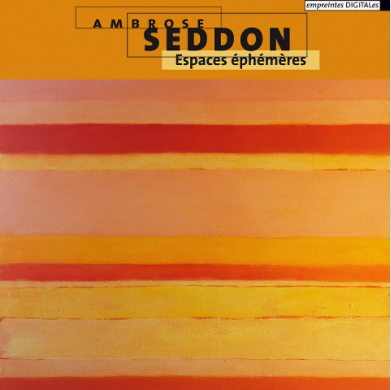
 On Wednesday, 24 February 2021, BU’s Research, Support & Development Office will be hosting our very first, pilot Virtual STEAMlab (Science/Tech/Engineering/Arts/Maths lab) event under the aegis of the strategic investment area (SIA) of Animation, Simulation & Visualisation (ASV). It will also be the first of a series of 2-hour long virtual ASV STEAMlabs to be held in the course of 2021.
On Wednesday, 24 February 2021, BU’s Research, Support & Development Office will be hosting our very first, pilot Virtual STEAMlab (Science/Tech/Engineering/Arts/Maths lab) event under the aegis of the strategic investment area (SIA) of Animation, Simulation & Visualisation (ASV). It will also be the first of a series of 2-hour long virtual ASV STEAMlabs to be held in the course of 2021.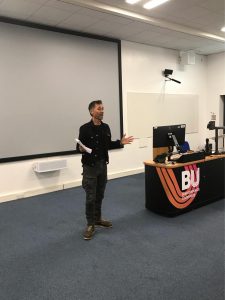
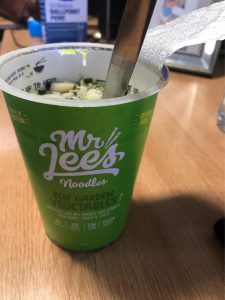
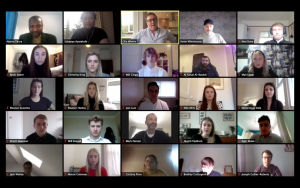
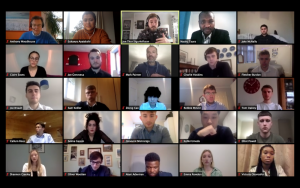
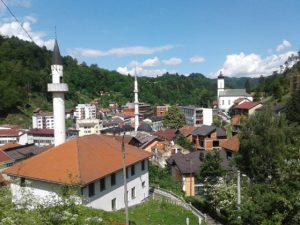
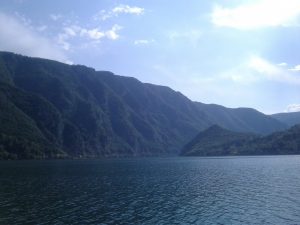
 The Science, Health, and Data Communications Research Group will be conducting a series of workshops to start off the new year, designed to help Bournemouth researchers form new networks and collaborative projects around educating and communicating research to the public.
The Science, Health, and Data Communications Research Group will be conducting a series of workshops to start off the new year, designed to help Bournemouth researchers form new networks and collaborative projects around educating and communicating research to the public.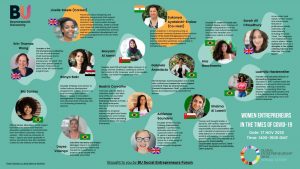
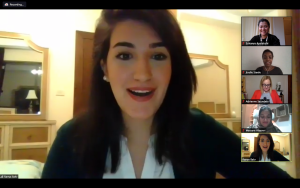
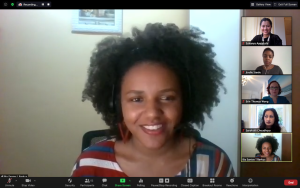

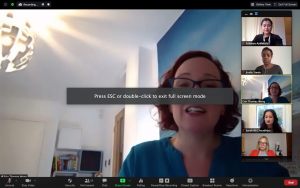
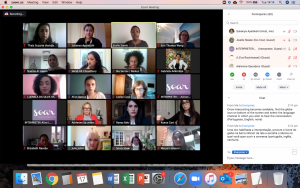
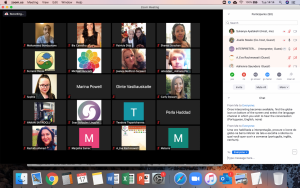
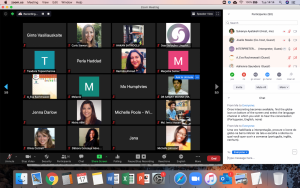
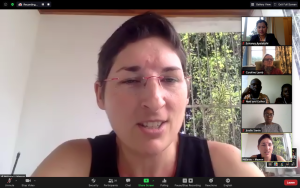
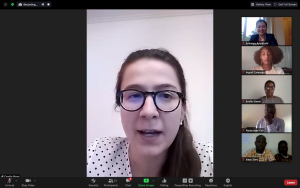
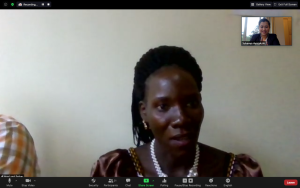
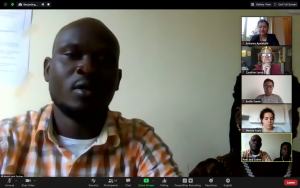
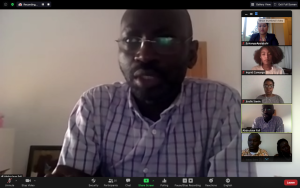
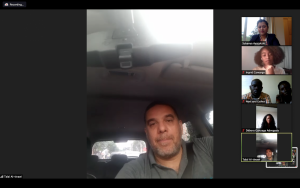

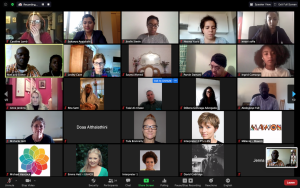
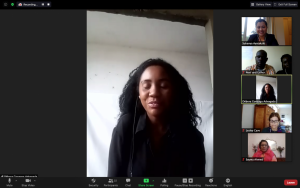
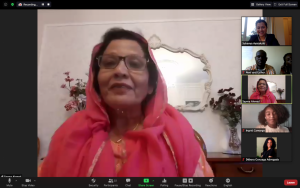
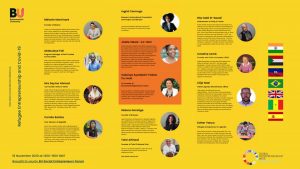
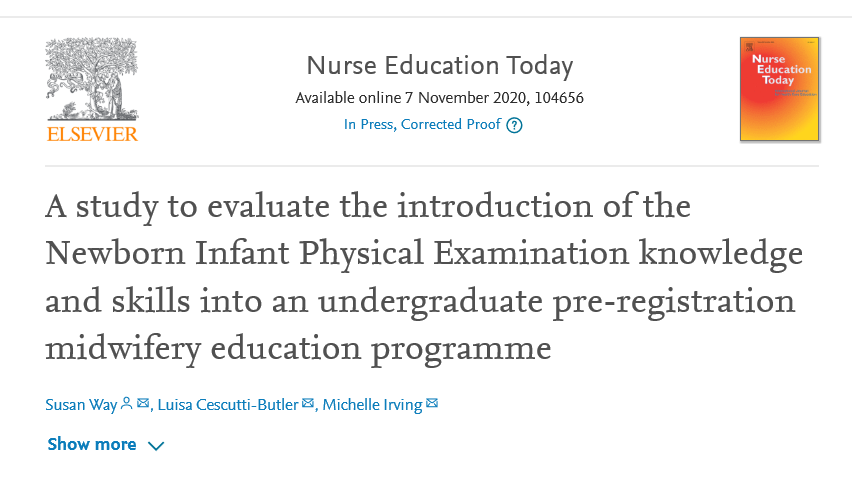

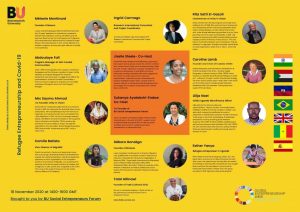
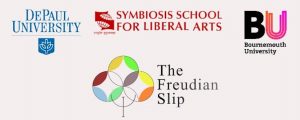 On 17th September 2020 students from DePaul University, USA; SSLA, India, and Bournemouth University engaged in an online dialogue exploring the effects of the current pandemic and their understanding of Psychology.
On 17th September 2020 students from DePaul University, USA; SSLA, India, and Bournemouth University engaged in an online dialogue exploring the effects of the current pandemic and their understanding of Psychology.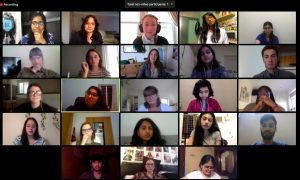











 Beyond Academia: Exploring Career Options for Early Career Researchers – Online Workshop
Beyond Academia: Exploring Career Options for Early Career Researchers – Online Workshop UKCGE Recognised Research Supervision Programme: Deadline Approaching
UKCGE Recognised Research Supervision Programme: Deadline Approaching SPROUT: From Sustainable Research to Sustainable Research Lives
SPROUT: From Sustainable Research to Sustainable Research Lives BRIAN upgrade and new look
BRIAN upgrade and new look Seeing the fruits of your labour in Bangladesh
Seeing the fruits of your labour in Bangladesh ECR Funding Open Call: Research Culture & Community Grant – Apply now
ECR Funding Open Call: Research Culture & Community Grant – Apply now ECR Funding Open Call: Research Culture & Community Grant – Application Deadline Friday 12 December
ECR Funding Open Call: Research Culture & Community Grant – Application Deadline Friday 12 December MSCA Postdoctoral Fellowships 2025 Call
MSCA Postdoctoral Fellowships 2025 Call ERC Advanced Grant 2025 Webinar
ERC Advanced Grant 2025 Webinar Update on UKRO services
Update on UKRO services European research project exploring use of ‘virtual twins’ to better manage metabolic associated fatty liver disease
European research project exploring use of ‘virtual twins’ to better manage metabolic associated fatty liver disease